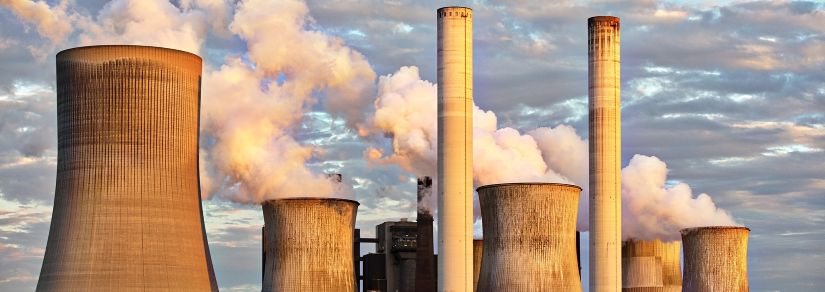Coal financing cost boosts green energy prospects

It is becoming increasingly difficult for the coal industry to prove financially sustainable. Investors are reportedly requiring returns of up to four times those required from sustainable investments in order to justify the increased risk of backing fossil fuels in the longer term. The proof is piling up that renewable energy generation is gaining ground.
Coal financing comes with increasing risk
A study from the University of Oxford, brought into the public eye by the Guardian this week, has highlighted the shift from fossil fuel investments to renewable energy sources by analysing the cost of financing energy projects and the returns expected from investors.
The study’s findings seem to suggest that investors in the industry are already distancing themselves from investments in coal and other fossil fuels, expecting significantly higher returns from these than they do from renewables such as wind and solar energy.
This reflects the view that renewable energy generation is increasingly cost-effective, even lucrative, and that global trends mean that investment in energy obtained from fossil fuels represents an increasing risk. Here are the numbers that the study came up with in terms of the percentage of return on investment that a project is expected to generate:
| Coal | Emerging market oil megaproject | Deepwater oil (US) | Shale oil (US) | Liquified natural gas | Emerging market wind/solar | Developed market wind/solar |
|---|---|---|---|---|---|---|
| 40% | 21% | 18% | 15% | 14% | 11% | 10% |
As can be seen, an investment in coal is expected to make returns of up to four times as much as a wind or solar energy investment in order to justify the risk involved in the long term as governments push action to combat climate change further up their list of priorities.
The numbers also demonstrate an increasing faith in the development and effectiveness of the technology associated with renewable energy generation, with low expectation on return demonstrating investor confidence in the long-term security of their investment.
Fossil fuels on their way out
One of the authors of the report, Dr Ben Caldecott, who is also the director of the Oxford Sustainable Finance Programme, told the Guardian that he expects the lower loan spreads that the report found to mean projects will be “cheaper for ratepayers and taxpayers” in the future. This would help in “rapidly decarbonising the energy sector,” Dr Caldecott said.
The report took financing costs collected from the period of 2010-2014 and compared it with costs between 2015-2020 and the following were among its findings:
- The cost of financing solar farms fell by 20%
- The cost of financing wind farms (both onshore and offshore) fell by 15%
- The cost of financing coal power stations rose by 38%
- The cost of financial coal mines rose by 54%
In essence, the idea that renewable energy sources will one day replace fossil fuels - once thought of by many as a pipe dream - already seems to be an eventuality accepted by investors and reflected in their investments. In Dr Caldecott’s words, the risk of investing in fossil fuels in the long term is already “priced in today.”
Coal seems to have been the biggest victim of this investment trend in recent years, with the report finding that the cost of financing gas-fired power plants rising by a more modest 7%. This does still reflect the general downturn in the industry, and Dr Xiaoyan Zhou, the lead author of the report, thinks that natural gas could “go the way of coal” as this trend continues.
Here at The Switch, we can only celebrate these developments and hope that we see environmentally-friendly methods of energy production continue to thrive and leave the burning of fossil fuels in the dust. For providers already offering green energy tariffs for your home, see our guide.
